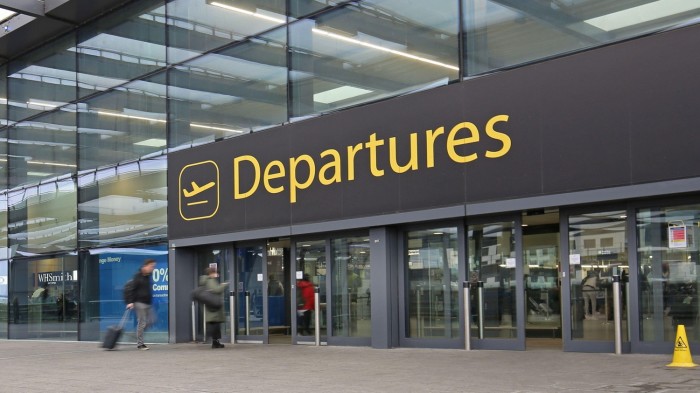Share this @internewscast.com
Stay informed with free updates
Summer often brings the delight of receiving absurd unsolicited marketing emails from tax consultants. My top pick so far has been Blick Rothenberg’s announcement that individuals pay income tax on their earnings, or as the firm expressed it: “HMRC Nets Over £750k from Lionesses’ Euro 2025 Win.”
The current trending grievance is that wealthy individuals are leaving the UK due to dissatisfaction with Chancellor Rachel Reeves’ tax strategies. The most renowned survey on this matter is conducted annually by Henley & Partners, with data from New World Wealth, a consultancy based in South Africa. It asserts that it calculates net millionaire migration for multiple countries. In 2025, the UK ranked last in this survey, supposedly with a net 16,500 millionaires fleeing Reeves’ tax policies. The reliability of these figures has been effectively discredited (with aid from FT journalists) by Dan Neidle, the founder of Tax Policy Associates think-tank.
Despite such a severe statistical critique, Labour should not assume that its tax policies are satisfactory or consider bolstering the UK’s public finances with a new wealth tax targeting the rich. Neither Henley & Partners, who assist individuals seeking overseas residency and citizenship, nor anyone else truly knows how many millionaires are leaving the UK because that data simply isn’t available. It’s challenging enough to ascertain how many millionaires reside in the UK, especially since the Wealth and Assets Survey was officially deemed unreliable in June. However, this doesn’t imply that no one is departing. There is credible evidence indicating a net outflow of wealthy individuals from the UK, correlating with significantly higher taxes on the wealthiest.
The FT has conducted a comprehensive effort to examine the departure of company directors, although the data behind this only offers a limited glimpse of behavioral responses. This is paired with substantial anecdotal evidence. Whether it’s the decrease in demand for butlers, unfavorable returns on top-tier prime London properties, financial concerns at exclusive members’ clubs, or reports from wealth managers, the environment for the super-rich in London is less accommodating than before. The Office for Budget Responsibility noted it anticipated a quarter of the wealthiest taxpayers with non-dom status to leave the UK after the last Budget, while highlighting that these estimates are “highly uncertain.”
While Mayfair flats and traditional clubs may not hold much significance for a UK economy nearing full employment, a nation with unstable public finances should not dismiss the emigration of any affluent individuals lightly. The UK might not lose significant tax revenue from a Middle Eastern, non-dom billionaire who only pays consumption taxes on services during rare visits. However, it loses considerably when high-earning bankers decide to return to the US or France while maintaining their positions.
Given their mobility, it’s improbable that additional tax revenue can be significantly extracted from the ultra-wealthy. Projections from the non-dom tax changes in last Autumn’s Budget were minimal, with the OBR predicting an average annual revenue of £4bn from 2026-27 to 2028-29 for the taxpayer before these additional revenues vanish.
Any UK government that wants to “squeeze the rich until the pips squeak” has to remember that there is a lot of yelping already. Earnings of the top 10 per cent and top 1 per cent have been falling compared with the UK average since 2010 as the proportion of tax they pay has risen. Wealth is already taxed more highly than in other advanced economies, with onerous property, transaction and inheritance taxes. It is reasonable to dismiss studies warning of an exodus of rich people from the UK as statistically unsound. But the Labour government should not ignore the wider evidence that the UK’s tax base has narrowed. It is risking a genuine exodus of the wealthy and that would be terrible for the public finances.
chris.giles@ft.com










